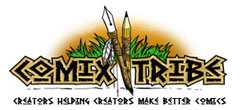In support of Hypothesis 2, there were high interactions ranging from faith and you will anxious accessory inside the forecasting cognitive and you may behavioral envy
Consistent with Hypothesis 1, significant negative associations emerged between trust and the two predicted jealousy subscales: Cognitive Jealousy and Behavioral Jealousy. First, trust and attachment anxiety interacted to predict cognitive jealousy, b = ?.095, t(254) = ?2.36, p = .019. Tests of simple slopes evaluated the association between trust and cognitive jealousy at high (+1 SD) and low (?1 SD) levels of attachment anxiety (Cohen, Cohen, West, & Aiken, 2003). Results are presented graphically in Figure 1 . Simple slopes analyses revealed that trust was negatively associated with jealousy at high levels of attachment anxiety, b = ?.392, ? = ?.487, t(254) = ?5.92, p < .001, and at low levels of attachment anxiety, b = ?.180, ? = ?.220, t(254) = ?2.49, p = .014. In other words, distrust in one's partner was associated with experiencing cognitive jealousy at low and high levels of anxious attachment but more strongly among those at higher levels of anxious attachment.
Affirmed, anxious accessory plus moderated the fresh new association between believe and behavioral envy, b = ?.070, t(254) = ?dos.04, p = .043. The latest correspondence was graphed inside the Figure dos . Screening off simple slopes showed that for those filled up with accessory nervousness, maybe not believing their companion was of this grows when you look at the behavioural jealousy, b = ?.180, ? = ?.270, t(254) = ?3.16, p = .002, whereas there’s no organization anywhere between faith and you can behavioural jealousy for someone reduced in connection stress, b = ?.022, ? = ?.041, t(254) = ?0.thirty six, p = .720.
We also evaluated associations between trust, anxious attachment, and physical and psychological partner abuse. In support of Hypothesis 3, main effects suggested that trust was negatively associated with both types of partner abuse. Furthermore, attachment anxiety was tested as a moderator of the association between trust and partner abuse (Hypothesis 4). Consistent with hypotheses, trust interacted with anxious attachment to predict nonphysical abuse, b = ?.071, t(254) = ?2.05, p = .042. Results are presented in Figure 3 . Simple slopes analyses showed a similar pattern as with behavioral jealousy; trust was not associated with psychological abuse for individuals lower in attachment anxiety, b = ?.047, ? = ?.073, t(254) = ?0.75, p = .451, whereas trust was negatively associated with abuse for anxious individuals, b = ?.206, ? = ?.320, t(254) = ?3.58, p < .001.
Bottom line, results advised one mistrust is of this high degrees of envious cognitions and you will habits and you can one another particular partner discipline. In the event stronger for anxious people, mistrust was associated with the jealous cognitions at all levels of connection nervousness. Distrust was just for the jealous behaviors (e.g., snooping) along with mental punishment certainly stressed anybody.
Additional Analyses
Analyses were performed to examine whether avoidant attachment also interacted with trust to predict jealousy and partner abuse. The interaction was not significant in four of five outcomes (all p > .20). An interaction emerged between trust and avoidant attachment in predicting cognitive jealousy, b = ?.131, t(254) = ?2.80, p = .005. Tests of simple slopes revealed consistent results to that of anxious attachment and cognitive jealousy. Specifically, the association between trust and cognitive jealousy was stronger at higher levels of avoidant attachment, b = ?.398, ? = ?.493, t(254) = ?6.25, p < .001, than at lower levels of avoidant attachment, b = ?.128, ? = ?.158, t(254) = ?1.61, p = .109.
Talk
The current search illustrates the significance of trust in dating and you can, a great deal more particularly, merchandise proof you to decreased faith have flowing consequences into partners’ knowledge and you can choices. In addition, this research is just  one of the very first to suggest you to definitely believe-relevant points ong people who find themselves highest in nervous accessory. The overall pattern off findings suggests that rely upon your mate try of the fewer view and you can concerns that an individual’s spouse can get getting romantically seeking anybody else, smaller tabs on one’s partner’s practices and you will house, and lower levels of psychological abuse. Having said that, conclusions recommend that mistrust is actually of way more intellectual envy, for example some of those exactly who experienced faster safe inside matchmaking (i.e., stressed some body). Furthermore, distrust was just in the behavioural jealousy and you can nonphysical punishment certainly anxious people. These types of conclusions suggest that envy could be an organic consequence of the subjective exposure to wanting even more (highest anxious accessory) but searching less (straight down faith) regarding a person’s companion.
one of the very first to suggest you to definitely believe-relevant points ong people who find themselves highest in nervous accessory. The overall pattern off findings suggests that rely upon your mate try of the fewer view and you can concerns that an individual’s spouse can get getting romantically seeking anybody else, smaller tabs on one’s partner’s practices and you will house, and lower levels of psychological abuse. Having said that, conclusions recommend that mistrust is actually of way more intellectual envy, for example some of those exactly who experienced faster safe inside matchmaking (i.e., stressed some body). Furthermore, distrust was just in the behavioural jealousy and you can nonphysical punishment certainly anxious people. These types of conclusions suggest that envy could be an organic consequence of the subjective exposure to wanting even more (highest anxious accessory) but searching less (straight down faith) regarding a person’s companion.
Category: Uncategorized










